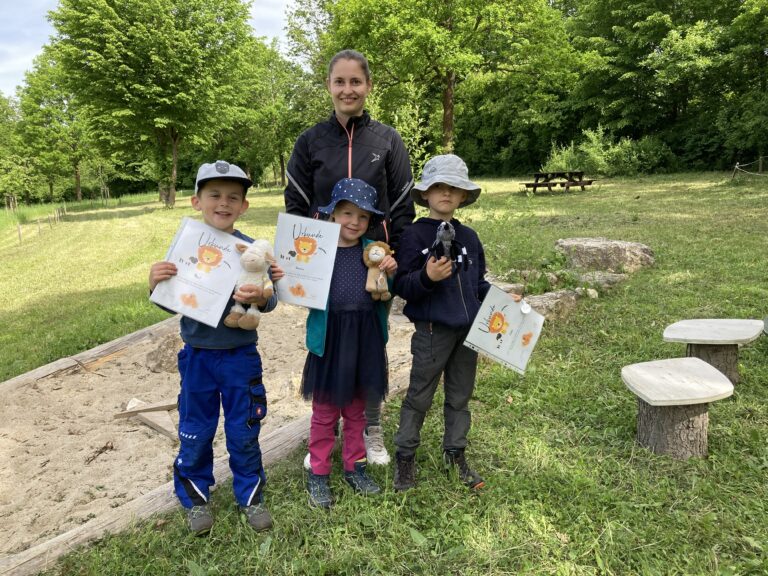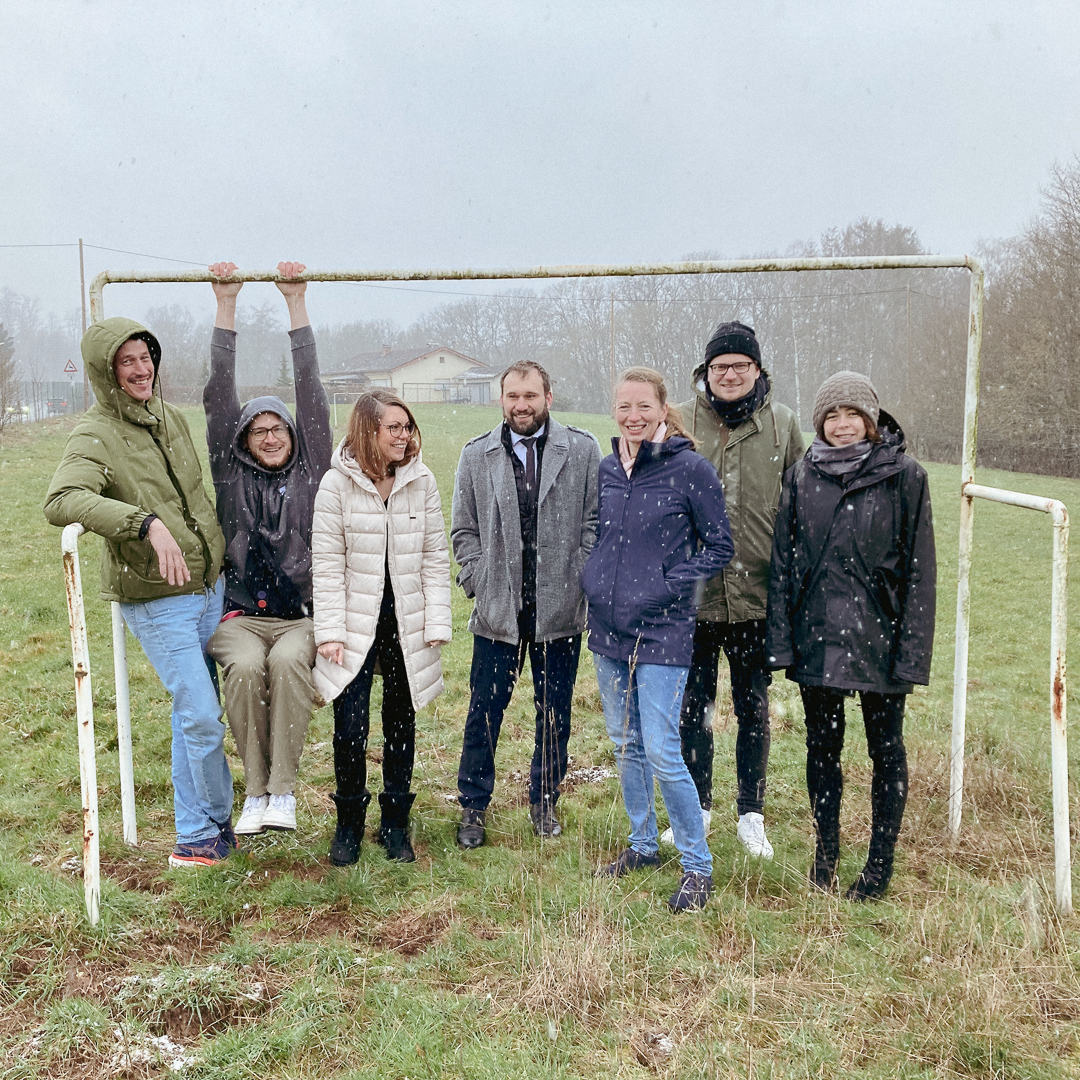
„Alte Hasen“ lernen von Löwen
Unsere „Alten Hasen“ im Wald sind zwar schon länger dabei, lernen aber nie aus. Diesmal durften sie von einem Löwen lernen: Nach dem zweitägigen Resilienztraining

It was already marked prominently on the calendar – the first date in and with Merchweiler, where in 2025, it’s not just about opening a new daycare center, but the #DaycareofTomorrow! What exactly this is meant to be, you will find out in this article.
Such a first meeting is always exciting – Is the hairstyle in place? Is the PowerPoint presentation running smoothly? What questions do the parents, educators, and neighbors have? The team prepares for the event with great care and effort to make a good first impression.
On a sunny and windy day, our info evening team traveled to Merchweiler from all directions. It was a great opportunity to meet in person and exchange ideas. After distributing all the goodies and information flyers on the seats, making sure the technology was running smoothly, and everyone was ready, we started the event. The Wemmetsweiler town hall filled up, and Patrick Weydmann, the mayor of Merchweiler, opened the evening.
Michael introduced himself and briefly presented the vision: “Childcare is a profession that carries a lot of responsibility. But that doesn’t mean we neglect fun. We want to bring back the joy and appreciation to the profession.” How do we achieve that? Only together!
Barbara, our pedagogical director, presented the key aspects that distinguish our pedagogy: experiencing nature, creating awareness for sustainability, and fostering creativity and digital competence. She also emphasized how we understand learning – comprehensive competency development through education for sustainable development and interconnected learning in all areas through development for sustainable education. She highlighted that it’s not about offloading all responsibilities onto the educators, as the #Kitavonmorgen project is a collective effort. Not only within the local team or different departments but also within society as a whole.
Luzia explained how the playground in Wolfskaul will transform into an innovative daycare center for 180 children with a strong connection to nature. The plan includes a green roof with a greenhouse, rainwater and greywater utilization, and approximately 1500 m² of garden and outdoor play areas for nature-based learning. Additionally, the two-story, nearly 2500 m² building will incorporate nature within the courtyard and a children’s forum – the central point. “We dream of having a living tree in the middle,” she said.
Here are the key facts:
The vision of a future-oriented power supply:
In our daycare centers, children encounter not just a place for care, but more importantly, an open educational space. “Daycare is a place where the next generation takes its first steps, and where society comes together every day,” explained Paul, who, as a co-founder of littlebigInnovation, introduced the guiding principle of “CrowdTark.” But what exactly is CrowdTark? For those who want to know all the details, it’s best to take a look here: “Together towards energy self-sufficiency.”
In a nutshell, CrowdTark is not just about selling a little self-generated energy back to the power provider. It is about taking the first steps towards sustainable neighborhood development. Energy surplus is directly fed into the local energy network, and in the future, anyone, whether private individual or business, can connect to the network to supply energy surplus to the neighborhood. The more participants, the more self-sufficient the community becomes!
Speaking of a collaborative process, the “Institute for Future Energy and Material Flow Systems” (Institut für ZukunftsEnergie- und Stoffstromsysteme, IZES), which accompanies the project, was represented by Prof. Frank Baur and Eva Hauser, offering a scientific perspective. They praised the project as an “important contribution to sustainable neighborhood development […] and to achieving climate goals.” On littlebigInnovation’s new YouTube channel, Paul talks with Prof. Frank Baur about the tasks of the IZES and the challenges in the future. More videos will surely come in the future, so be sure to subscribe to our YouTube channel to stay up-to-date and explore with us.
We extend our gratitude to the IZES for their scientific support and to the community of Merchweiler for the warm welcome and lively exchange!

Unsere „Alten Hasen“ im Wald sind zwar schon länger dabei, lernen aber nie aus. Diesmal durften sie von einem Löwen lernen: Nach dem zweitägigen Resilienztraining

Over 30 families and the EPGlinos team gathered last Friday for Family Hiking Day. In the end, nearly 100 (big and small) people joined the

The word has spread – now you can see it with your own eyes. He really exists: the Gruffalo. And not just him, but also
© 2023 littlebigFuture gGmbH
All rights reserved